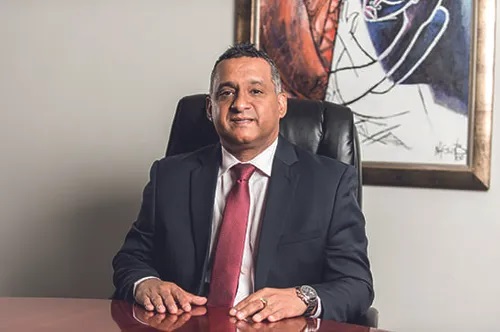Mozambique: Government invites Turks to transform raw materials locally
Mozambique: Stock exchange sees first green bonds floated once new law comes in

File photo: Mozambique Energy & Industry Summit
The Mozambique Stock Exchange (BVM) expects to see a first issue of ‘green bonds’ – aimed at financing investment in the sustainable economy – floated on the market as soon as the legislation for this purpose is approved, later this year, the institution’s boss told Lusa on Monday.
“I believe that once the regulatory instruments are approved in 2024, we will have the first sustainable financing issue, and it will certainly be a green bond issue, because that is what we have been working on with one of the national financial institutions that showed an early interest in its materialisation in Mozambique,” said chairman of BVM’s board of directors, Salim Valá.
The chairman said that the inclusion of sustainable finance products in the securities portfolio “will strengthen the improvement of Mozambique’s position in international Capital Markets indices, such as the ABSA Finantial Markets Index (AFMI),” among others.
“The absence of this type of product has harmed Mozambique’s position in these indices,” he pointed out, acknowledging that the institution has been following the possibilities of issuing Sustainable Finance bonds “very closely”, including the role taken on by various international institutions to “support the transition of African countries to green growth” with such funding instruments.
“The proceeds from these sustainable bond issues are intended to support the transition to a green economy in Africa, and will support the efforts of these entities in the areas of climate change mitigation and adaptation, the creation of sustainable infrastructure, the efficient and sustainable use of natural resources, forest and biodiversity conservation projects, among others,” he said.
According to Valá, “since 2022, BVM has been preparing proposals for a foundation document and a draft regulatory instrument for the launch of sustainable financing instruments, including green bonds [to finance investments in the green economy] and blue bonds [for the maritime economy], but also other types of special purpose bonds, such as social impact bonds,” he said.
Mozambique still lacks regulations for these issues, such as on the bonds’ characteristics and how they should be traded, in line with internationally accepted procedures, “namely from entities such as the International Capital Market Association (ICMA),” Valá noted, while stressing that it is already “exchanging experiences” with exchanges in neighbouring countries such as Tanzania, Botswana and South Africa, as well as with other Portuguese-language countries, Cabo Verde and Angola.
Valá stressed to Lusa that BVM is already “an investment alternative” for ordinary people and that “many investors participate in the stock market” in the country “although not yet at the level we’d like.
“In 2016 the number of investors registered with the Central de Valores Mobiliários (CVM) was 6,495 and by the end of 2023 it is [estimated to have been] 25,451, an increase of 291.9%, which reflects the growing interest of citizens in investing in the capital market and the stock exchange,” he said.
He admitted that the launch of new technological services had brought the stock exchange “closer to investors, namely those that provide information on the market and companies” and on listed securities.
“The BVM has sought to promote the creation of entities specialised in providing economic information to help investors make decisions about buying and selling securities,” he explained.
He also guaranteed that BVM is preparing to introduce a platform that will allow investors to buy and sell securities online, “digitally and not in person, through financial institutions and stockbrokers, but in a transparent way for investors and all those involved in the capital market ecosystem.”













Leave a Reply
Be the First to Comment!
You must be logged in to post a comment.
You must be logged in to post a comment.